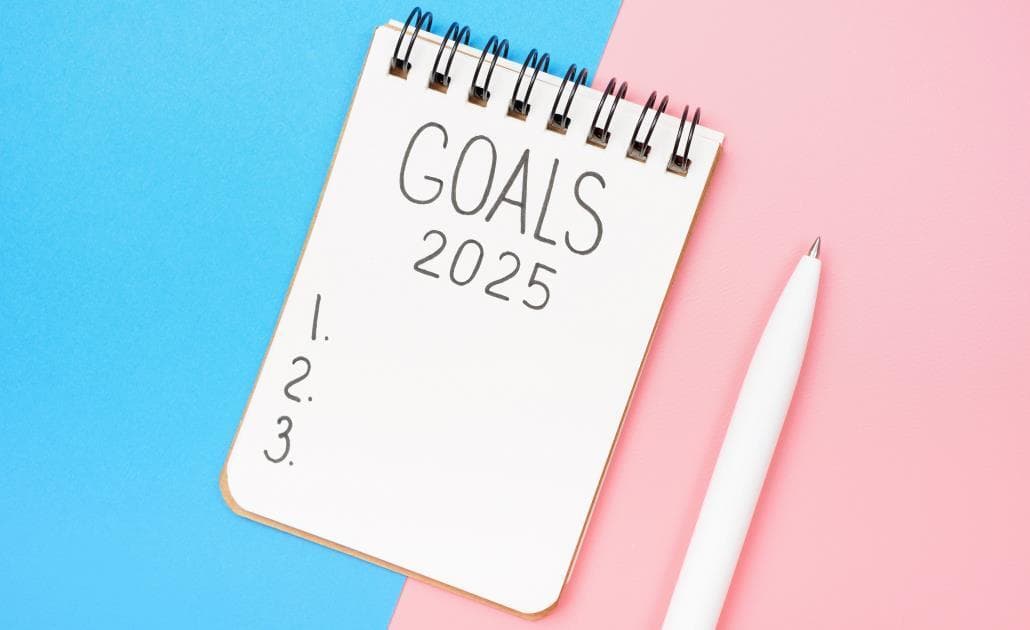
Between managing patients, navigating client relationships, and juggling administrative tasks, it’s easy to let personal growth fall by the wayside. However, as the new year rolls around, it’s the perfect time to step back, reflect, and set meaningful resolutions that prioritize your wellbeing and development.
Here’s how to make 2025 the year of you.
Reflect on what matters most
Before diving headfirst into a list of resolutions, take a moment to reflect. What truly matters to you? What brought you joy and fulfillment last year? More importantly, what drained your energy or felt unsustainable? By answering these questions, you’ll identify the areas of your life that need the most attention.
For instance, maybe you realized you were spending so much time on work that you neglected hobbies or relationships. Or perhaps you’re feeling stuck in a routine and want to challenge yourself to learn something new.
Whatever your focus, make sure your resolutions align with your values and priorities. Trying to tackle many goals at once can get overwhelming, so try to concentrate on one or two meaningful areas to give yourself the best shot at success.
Setting resolutions that stick
The best resolutions aren’t vague aspirations like “be less stressed” or “get healthier.” They’re concrete, actionable, and realistic. To increase your chances of sticking to them, try using the SMART framework: specific, measurable, achievable, relevant, and time-bound.
Here’s an example. Instead of saying, “I want to manage my stress better,” you could aim for, “I’ll spend 10 minutes every evening practicing mindfulness with a guided app.”
This goal is specific (mindfulness practice), measurable (10 minutes), achievable (it’s doable even on busy days), relevant (it addresses stress), and time-bound (daily).
Other examples could include:
- Building stronger boundaries between work and personal time, like committing to no emails after 7 p.m.
- Carving out an hour a week to explore a creative hobby you’ve always wanted to try.
- Dedicating one weekend a month to outdoor activities or trips to recharge.
By breaking down lofty ambitions into smaller, manageable steps, you set yourself up for success.
Building habits to stay on track
Once you’ve set your resolutions, the real challenge begins: sticking to them. Good intentions can only take you so far, so it’s essential to turn your resolutions into habits.
One effective strategy is habit stacking, where you attach a new habit to an existing routine. For example, if you want to start journaling, pair it with your morning coffee. Already brewing the coffee becomes the trigger for picking up your journal.
Habit-tracking apps like Habitica or Streaks can also help you stay consistent. There’s something oddly satisfying about ticking off a box or seeing a streak grow. Plus, they’re a gentle reminder to keep going when motivation dips.
Another great way to stay on track is to involve someone else. Share your goals with a friend, colleague, or family member who can hold you accountable. Even better, find someone with a similar resolution and tackle it together. It’s easier to stick with a plan when you’ve got company.
Remember, progress is more important than perfection. Skipping a day or slipping up doesn’t mean you’ve failed. It’s just a reminder to adjust and keep moving forward.
Overcoming obstacles to personal growth
Let’s be real - life happens, and sticking to resolutions isn’t always easy. Time constraints, self-doubt, or plain old burnout can derail even the best-laid plans. The key is to anticipate these obstacles and have strategies in place to overcome them.
Short on time? Start small. If your goal is to exercise more but your schedule feels packed, aim for just 10 minutes a day. A quick walk around the block or a short yoga session still counts, and it’s a lot easier to commit to than an hour at the gym.
Dealing with self-doubt? Remind yourself why you set this resolution in the first place. Whether it’s improving your mental health, learning a new skill, or simply finding more joy in life, keep that purpose front and center. Writing it down and revisiting it regularly can help reignite your motivation.
Feeling burned out? Give yourself permission to pause and reassess. Sometimes, the best resolution is to simply rest and recharge before taking on anything new. Flexibility is key - it’s okay to adjust your goals as life evolves.
Celebrating progress and adjusting goals
Personal growth is a journey, not a sprint, and celebrating your wins along the way is crucial. Taking time to acknowledge your progress - no matter how small - can help keep you motivated and excited about your goals.
One way to celebrate is to set milestones and rewards. For example, if your resolution is to read more, treat yourself to a new book after finishing three. Or, if you’re trying to spend more time outdoors, plan a fun day trip after a month of consistent effort.
Reflection is just as important as celebration. At the end of each month, ask yourself: What worked? What didn’t? Are these goals still serving me? Adjusting your resolutions based on what you’ve learned isn’t failure - it’s smart. Goals should evolve as you do.
Make 2025 the year of you
This year, prioritize yourself. Set resolutions that nourish your personal growth, embrace habits that support your well-being, and tackle challenges with resilience. Whether it’s building stronger boundaries, pursuing new hobbies, or simply taking time to breathe, every step you take toward personal growth will make you happier, healthier, and more fulfilled.
Here’s to a year of thriving - not just surviving.